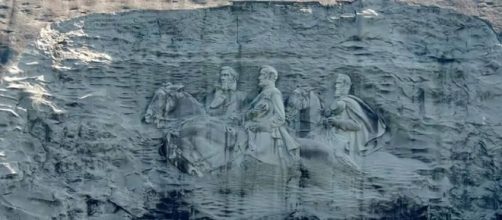In the wake of Dylann Roof’s massacre of a group of African American church parishioners, a number of state and local governments are falling over themselves to deconfederize its public buildings and monuments. The names of Confederate generals are being removed from schools and are being replaced by those of civil rights figures. Monuments to Confederate figures are being taken down throughout the south, in New Orleans much to the outrage of some of the locals. Now, an unusual celebrity has spoken out against what she views as a sanitizing of American history: former Secretary of State Condoleezza Rice.
Condi Rice is doing the rounds of all of the cable talk shows as a result of her upcoming book. “Democracy: Stories from the Long Road to Freedom.” She told the Washington Examiner that people who want to remove signs of the Confederacy from the names of schools and public monuments want to feel good about themselves at the expense of looking at American history, even the less seemly side of it, and learning from it.
Dr. Rice has a particular moral authority on this controversy that a white person bemoaning the loss of southern heritage lacks. First, she is African American. Also, she grew up in the Jim Crow South and experienced its evils first hand. The story of her rise, as a genius with skills in both foreign policy and music, would make an inspirational movie on the level of “Hidden Figures” were it not for the disqualifying facts that she is a Republican and served as President George W.
Bush’s secretary of state. Rice has been subjected to the same kind of racism from the left that she experienced as a girl from white supremacists.
She has something of a point. The south is cluttered with statues of Robert E. Lee and Jefferson Davis and a myriad of other Confederate soldiers and politicians because people in the defeated South wanted to celebrate their own heroism, even though their rebellion failed. The idea that such monuments are not appropriate in an era that recognizes the evil of slavery and Jim Crow is a powerful one. But Rice, adroitly, suggests that these statues and even the names of schools should be used as teaching tools, as a way to understand history even as we learn not to celebrate it. "I want us to have to look at those names and recognize what they did and to be able to tell our kids what they did and for them to have a sense of their own history,” she stated.

